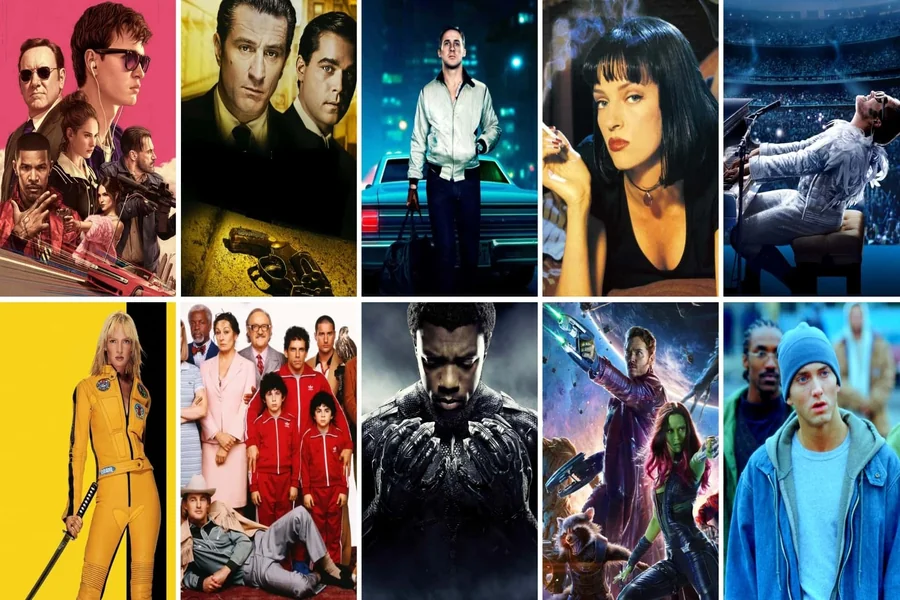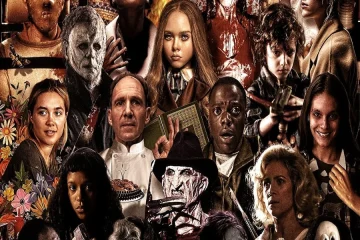When we think about our favorite movies, we often remember the gripping storylines, the brilliant acting, or the stunning visuals. Yet, there’s another crucial element that lingers long after the credits roll: the movie soundtrack. Music is the beating heart of a film, an invisible thread that binds together its emotional highs and lows. Without a compelling soundtrack, even the most well-crafted scenes can fall flat. Let’s explore why movie soundtracks are just as important as the film itself.
The Emotional Backbone of Storytelling
A powerful soundtrack amplifies emotions and gives scenes deeper resonance. Picture a suspenseful moment in a thriller—imagine the tension built by a haunting, pulsating score. The music makes us lean in, hold our breath, and feel the protagonist’s fear. In romance films, a soft, melodic tune can evoke feelings of love, longing, or heartbreak that dialogue alone might not fully convey.
Directors and composers understand this synergy. Take John Williams’ unforgettable work on Star Wars—the moment the main theme swells as Luke Skywalker gazes at the twin suns of Tatooine is iconic. That music is the emotion. Without it, the scene would lack the epic sense of adventure and destiny that defines the franchise. Music doesn’t just support the narrative; it shapes it.
Creating Atmosphere and Immersion
Beyond emotion, music sets the tone and atmosphere for entire films. Horror movies are a perfect example of this dynamic. The ominous strings in Psycho, the chilling piano in Halloween, or the unsettling synths in Stranger Things immediately transport viewers into a world of dread and suspense. Even before a character appears on screen, the music primes us to feel something.
Similarly, fantasy and science fiction movies often use grand orchestral scores to create worlds that feel larger than life. Hans Zimmer’s score for Inception pulls us into a world of shifting realities and layered dreams. The deep, resonant “BRAAAM” sound—now iconic—makes the impossible feel grounded and intense. The right music transforms sets and CGI effects into living, breathing places that audiences can believe in.
Character and Identity
A well-designed soundtrack can even become synonymous with a character’s identity. Think of the eerie notes that signal the presence of Darth Vader in Star Wars, or the playful, adventurous theme that follows Indiana Jones. These musical cues instantly tell us who is on screen and what they represent.
Music also reveals character emotions and motivations. In The Social Network, Trent Reznor and Atticus Ross’ digital, pulsing score captures Mark Zuckerberg’s cold, calculating ambition. In Rocky, Bill Conti’s triumphant “Gonna Fly Now” mirrors Rocky Balboa’s transformation from an underdog to a hero. These soundtracks aren’t just background noise—they’re vital pieces of character development.
Cultural Impact and Lasting Legacy
A memorable soundtrack can transcend the movie itself and become a cultural touchstone. Who hasn’t hummed the Jaws theme in the pool, or recognized the opening notes of Jurassic Park? These melodies embed themselves in our collective consciousness, continuing to resonate long after the film’s release.
Soundtracks can also introduce new audiences to different music genres. Quentin Tarantino’s use of vintage rock and soul tracks in Pulp Fiction not only defined the film’s cool, edgy vibe but also sparked a revival of interest in artists like Dick Dale and Chuck Berry. Similarly, Guardians of the Galaxy leveraged 1970s and 1980s pop hits to create a nostalgic yet fresh musical landscape that resonated with audiences young and old.
Enhancing Pacing and Narrative Flow
Beyond emotional impact and atmosphere, soundtracks play a crucial role in the pacing and rhythm of a film. A fast-paced action scene might be accompanied by a driving beat that heightens the adrenaline, while a slow, contemplative sequence might use minimalistic, ambient music to give the viewer space to breathe and reflect.
Directors often collaborate closely with composers to ensure that music matches the narrative flow. In Christopher Nolan’s Dunkirk, Hans Zimmer’s ticking clock motif is woven seamlessly into the sound design, creating a relentless sense of urgency that mirrors the film’s non-linear structure. The music doesn’t just accompany the story—it is the story.
When Silence Speaks Volumes
Of course, sometimes the most powerful musical choice is no music at all. Silence, or the strategic absence of music, can create an unsettling or poignant atmosphere that forces audiences to focus on the visuals or dialogue. When music returns, it often hits harder because of the contrast. This dynamic use of sound and silence is another reason why movie soundtracks are so essential—they give filmmakers an extra layer of storytelling power.
Supporting Independent Films and Emerging Artists
Movie soundtracks also play a vital role in supporting the broader music industry, especially for independent films. Indie directors often collaborate with lesser-known musicians to create soundtracks that complement their films’ unique tones. These partnerships can launch new artists into the spotlight, giving them exposure to wider audiences.
For example, the Garden State soundtrack, curated by Zach Braff, became a cultural phenomenon and boosted the careers of artists like The Shins and Iron & Wine. This symbiotic relationship between film and music enriches both industries and fosters creative growth.
Soundtracks as Standalone Art
Many soundtracks stand alone as musical masterpieces. They become part of our personal playlists, accompanying us on road trips, study sessions, and workouts. The music we discover in movies often finds its way into our everyday lives, forging emotional connections that extend beyond the screen.
Think of the Titanic soundtrack by James Horner—its sweeping orchestral pieces are as moving today as they were in 1997. Or Ennio Morricone’s work on The Good, the Bad and the Ugly, which continues to inspire artists and filmmakers decades later. These albums hold their own as artistic achievements, proving that soundtracks are not just support beams—they’re pillars of cultural expression.
Conclusion: An Indispensable Element
In the grand tapestry of filmmaking, music is the golden thread that weaves everything together. Soundtracks are not mere accompaniments; they are equal partners in the storytelling process. They shape our emotions, set the tone, deepen our understanding of characters, and sometimes even define the cultural impact of a film. Without music, movies would lose a vital dimension of their power.
The next time you watch a film, close your eyes for a moment and listen. You’ll realize that the soundtrack is telling a story of its own—a story just as important as the one unfolding on the screen. And that is why, in the world of cinema, the soundtrack is every bit as important as the film itself.



